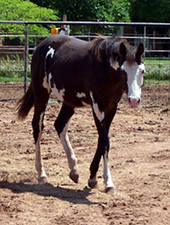 Spotted horses have always held a special place in my heart, their showy displays of color make them great photography subjects.
Spotted horses have always held a special place in my heart, their showy displays of color make them great photography subjects.
Pintos Come in A Rainbow of Colors
Because pintos can be any breed, their colors and genetics vary widely. With so many patterns and so many colors to choose from I’ll never be able to pick a favorite?
In my quest to find the prettiest pinto out there, I ran across such a lovely rainbow of colors and patterns that I decided to put them together into a post and share them.
Base Colors
The two basic colors of horses are black and chestnut, all colors and white patterns stem from these two basic colors.
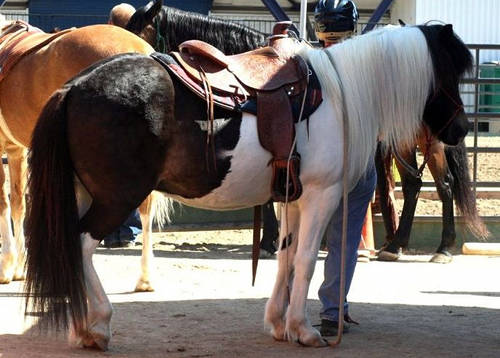
Also called piebald and comes from a pinto white pattern on a black base.
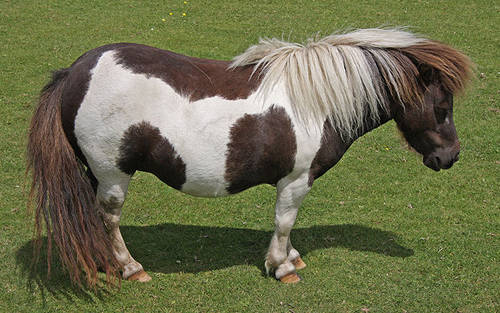
Also called skewbald and is the result of a pinto white pattern on a chestnut base.
Modifiers
There are several genes that modify the basic black and chestnut bases.
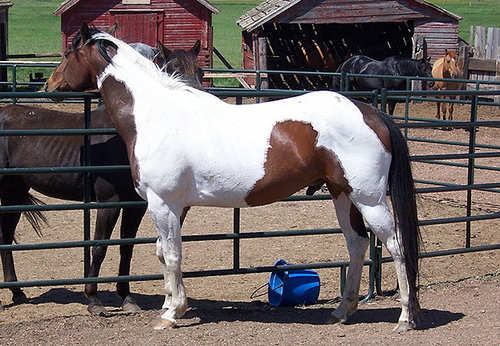
Also called skewbald and is the result of a pinto white pattern on a bay animal.
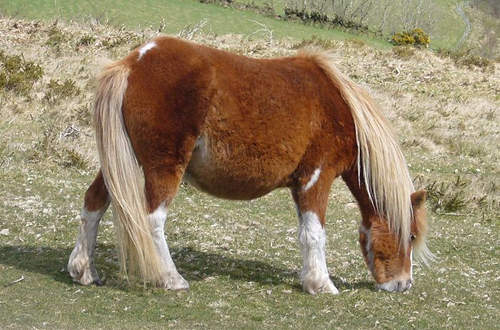
This coloration is the result of a pinto white pattern and a flaxen modifier on a chestnut base.
Dilutions
Dilution genes not only affect the base colors, but they can affect modified colors to, furthering the spectrum of colors.

Comes from a pinto white pattern and a creme dilution gene on a chestnut base.
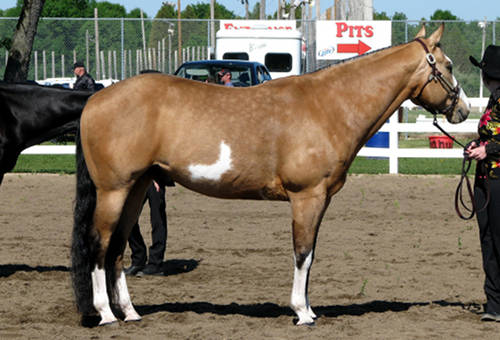
Due to a pinto white pattern and a creme dilution gene on a bay animal.
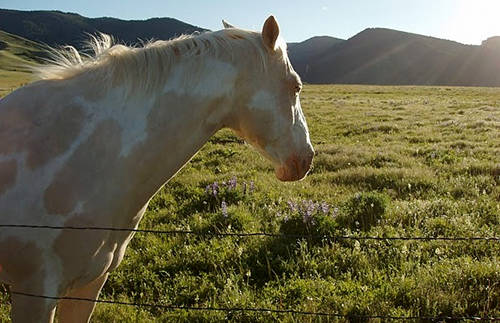
A rare animal, this coloration comes from a pinto white pattern and a double dose of the creme dilution gene on a chestnut base.
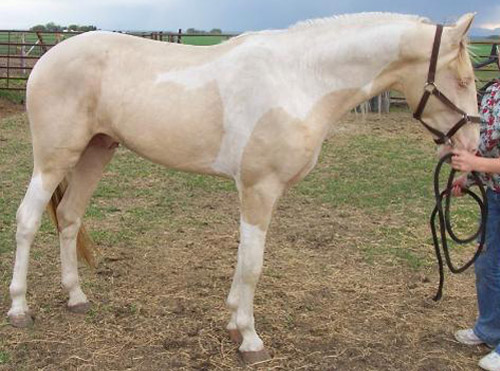
Similar to the cremello, (and just as rare), this coloration is due to a pinto white pattern and a double dose of the creme dilution gene on a bay animal.
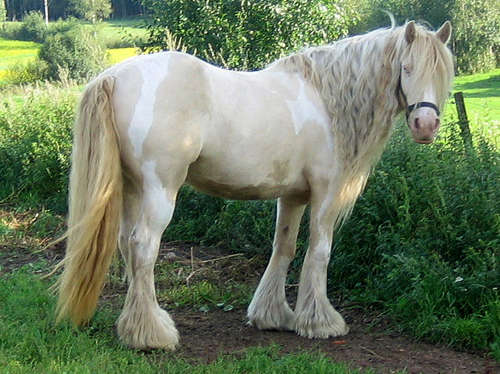
This color is from a pinto white pattern and a double dose of the creme dilution gene on a black base.
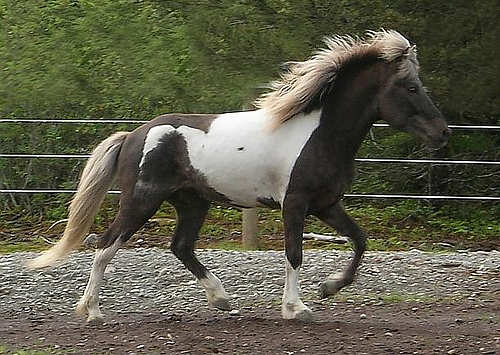
Found mainly in miniature horses, and results from a pinto white pattern and a silver dilution gene on a black base.
Comes from a pinto white pattern on a bay animal with a dun dilution.
Comes from a pinto white pattern on a black base with a dun dilution.
White Patterns
Horse coats can be affected by more than one white pattern at a time.
Due to a pinto white pattern and a appaloosa white pattern on any color.
Colorful Fun
Hope you enjoyed, horse coloration is quickly becoming one of my favorite topics of research. I’m working on an appaloosa version too, paying homage to the spotted horses of the world.
Dear Paige,
Re the variety of Pinto colorings — who knew?!! Incredible. Especially loved the little “Pintaloosa”. And what in the world is going on in the last photo — looks like one horse biting another but really hard to tell. I’d unsubscribed to The Equinest for a little while, but just re-subscribed — the only regular e-mails I would get that I actually really enjoyed, and that always teach me something new. So I’m back on the list. Glad you’re still there, and thanks, for still being there and being so full of information and variety and interesting stuff. (I live in a small apartment in a suburb of Detroit, have never owned a horse, but used to dream of doing so, and have never stopped loving them–one of the most beautiful creatures on the earth.)
Hi Deb,
Thanks for your note, glad to have you back. 🙂